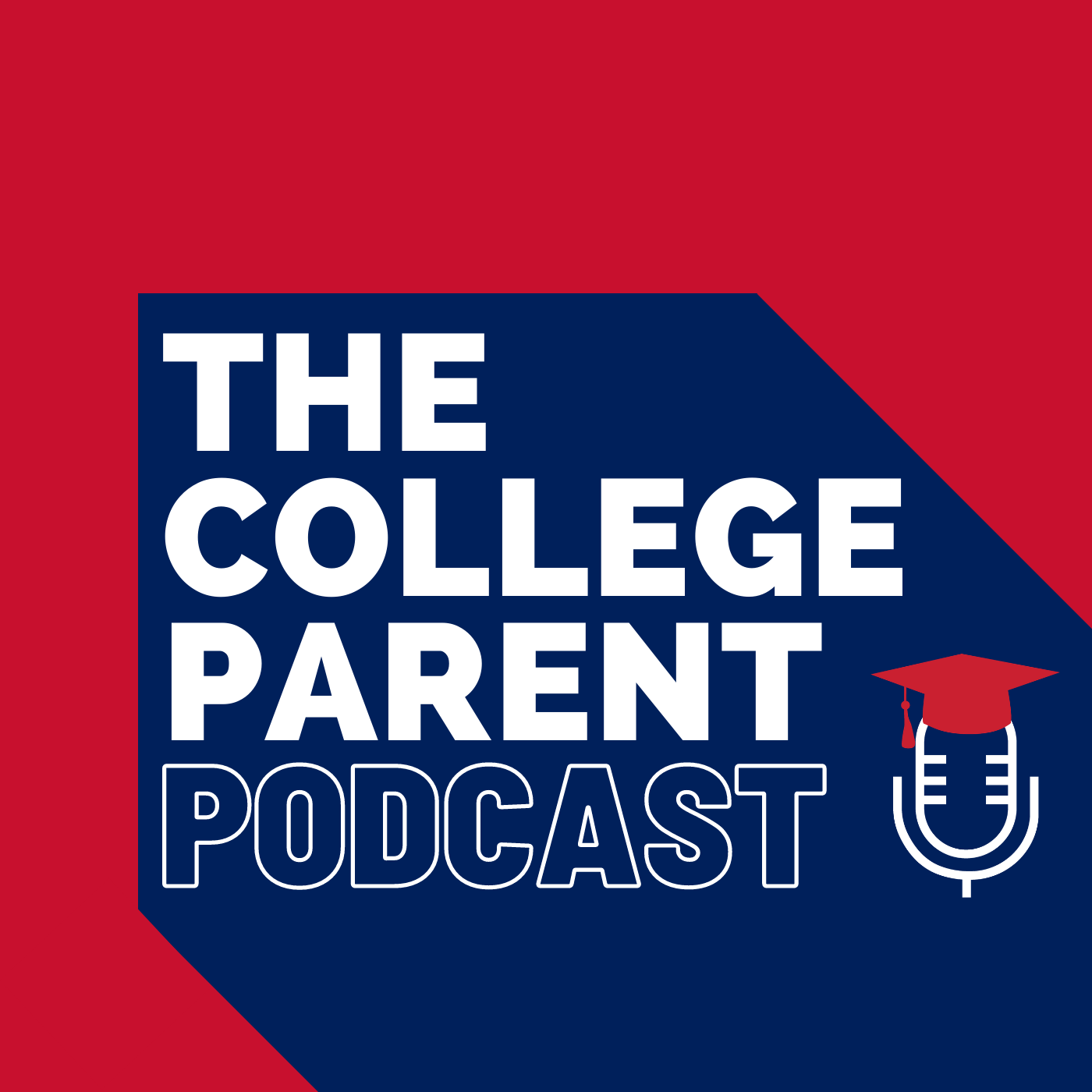
The Better Semester
Rob Danzman is a licensed therapist who's worked with college students and their parents for over two decades. He's written two books: The Insider's Guide to Parenting: How to Solve Messy Problems and Build a Great Family and The Insider's Guide to College: Evidence-Based Tips, Tricks, and Strategies to Win the Semester. The Better Semester is an extension of his work and is all about providing info to parents of college students. Each episode if full of insights, strategies and tactics - all super actionable advice to get your struggling college student solid again.
How much is too much parenting when your kiddo heads off to school? How can college students find help when they're struggling? How should medication be handled while they're at college? How can parents coordinate with the university?
All of these and more are covered weekly.
The Better Semester
College Freshman Transition: What Parents Need to Know (and Stop Doing)
Sending your son or daughter off to college is more than just move-in day and tuition payments—it’s a developmental earthquake. Every pillar of their identity—academic, social, emotional, and financial—gets tested. For parents, especially high-achieving families, the transition can feel even more complicated: you want your child to succeed, stay safe, and thrive, but you also know you need to step back and let them grow.
In this episode of The Better Semester, we walk parents through the evidence-based strategies that make the freshman year transition smoother and healthier—for both your student and your family. Drawing from current research, clinical experience, and real family vignettes, you’ll learn how to normalize struggles, redefine success, and communicate without conflict.
What You’ll Learn in This Episode:
✅ Normalize the Struggle – Nearly 60% of college freshmen report overwhelming anxiety, and half struggle with depressive symptoms in their first semester. Instead of measuring success by whether your student is “happy,” shift the conversation: “What’s been most challenging this week, and how are you working through it?” This reduces pressure and builds resilience.
✅ Letting Go Without Losing Touch – Micromanaging signals “I don’t trust you.” Research shows helicopter parenting lowers resilience and problem-solving skills. Success in freshman year isn’t a 4.0 GPA—it’s learning self-advocacy, navigating setbacks, and being healthy enough to return sophomore year.
✅ Mental Health & Wellness Foundations – Sleep, nutrition, and social connection predict emotional health more than academics. Students who get fewer than 6 hours of sleep are twice as likely to experience depression. Parents can help by coaching, not managing—asking, “What’s your strategy for staying rested?” instead of nagging about bedtimes.
✅ Communication Without Conflict – Parents crave reassurance, students crave autonomy. Misalignment leads to guilt, resentment, and silence. The solution? A communication contract: set agreed-upon times for check-ins. Conversations thrive when parents use curiosity-based questions rather than constant check-ins or grade-tracking.
✅ Red Flags vs. Normal Struggles – It’s normal for students to feel homesick, stressed, or miss familiar food. But warning signs include withdrawal from friends, missed classes for more than a week, hopelessness, or talk of self-harm. Every parent should have three numbers saved before drop-off: campus counseling (CAPS), campus security, and student health services.
Why This Matters for Parents
Families with high expectations often place invisible pressure on students—academic perfection, social status, and career paths. By reframing success around resilience, independence, and emotional wellness, you’ll not only protect your child’s mental health but also prepare them to thrive in competitive environments. This is about raising resilient young adults who can manage setbacks, seek help, and grow stronger—not just check boxes on a résumé.
Big Takeaways for Parents:
- Normalize the struggle.
- Redefine success as independence.
- Coach wellness instead of nagging.
- Create a communication contract.
- Know the red flags—and the resources.
This episode gives you the practical playbook you wish you had before drop-off. Whether your student is attending a top-tier university, a competitive state school, or studying abroad, these tools help you stay connected while giving them the independence they need to grow.
https://www.youtube.com/channel/motivatecounseling
https://motivatecounseling.com/
https://motivatecounseling.com
Today we’re diving into the transition to freshman year. I remember my freshman year. I didn’t know anyone but was super excited and ready to get into the next chapter of my life. Even though it was generally a positive experience for me, freshman year was still unlike any other transition I’d been through up to that point. For today I’ll be pulling insights from psychology, data on college success, and also some hard truths I’ve seen in my work with students and their parents so that your transitions are also positive and well-thought out as possible. Think of this as a mash-up between therapy, a business case study, and a tough-love conversation with someone who really wants your kid to thrive. For good measure, I’ve added some stories from actual clients. I’ve changed their names to protect their identities but I’m sure these examples will sound familiar to most of you.
Let’s get into it.
Part 1 – The Big Picture
- “Here’s the headline: College transition is a developmental earthquake. Every pillar of a student’s identity—academic, social, emotional, and financial—gets tested and shaken-up even if they don’t understand or acknowledge it.
- The American College Health Association reports that nearly 60% of students report overwhelming anxiety their first semester. Half say they felt so depressed they struggled to function.
- That’s not to scare you—it’s to set expectations. Assume there will be challenges, arguments, crying, excitement, fear, depression, anxiety, etc. It’s easier to address the ups and downs if you are expecting them rather than reactive.
Actionable Advice #1: Normalize the struggle. Instead of asking, ‘Are you happy?’ ask, ‘What’s been most challenging this week, and how are you working through it?’ That single shift reduces pressure, invites honesty, and keeps the relationship open.”
Vignette:
“I was working with a family last year—parents from New Jersey, son headed to a Big Ten school. Mom kept saying, ‘I just want him to be happy.’ Within three weeks, he was homesick, eating Chick-fil-A every night, and telling her on FaceTime, ‘I hate it here.’
Now—normal adjustment? Absolutely. But because mom’s barometer was ‘happy’ instead of ‘learning how to adjust’—she panicked. She called me, called the RA, even called the dean.
By October, he’d joined intramural soccer, found a study group (not sure if he was actually studying but whatever), and loved his poli-sci class. He didn’t need rescue. He needed space.
So—normalize the struggle. Don’t measure success by whether they’re happy today—measure by whether they’re building resilience over time.”
Part 2 – Letting Go
- “Here’s the truth: Parents often think they’re helping by micromanaging—but they’re just signaling, ‘I don’t trust you.’ That erodes confidence.
- Think of it like investing. If you want compounding returns, you have to put money in and then leave it alone. Checking the market every 10 minutes just makes you anxious. Same with your kid.
- The data backs this up: A 2019 Stanford study showed that students with helicopter parents had lower resilience and more difficulty managing setbacks.
Actionable Advice #2: Redefine success. Success freshman year is not straight A’s. It’s your son or daughter learning how to advocate for themselves—emailing a professor, using office hours, finding the tutoring center, building friendships that aren’t just convenience-based. It’s also being healthy enough to return for Sophomore year.”
Vignette:
“A dad I worked with—successful hedge fund manager—told me, ‘I’m worried my daughter won’t ask for help if she needs it.’
Here’s what he was doing: secretly checking her student portal every week. Tracking every quiz grade. She found out. And you can imagine—trust shattered.
But when we reframed success as her learning to advocate for herself—not perfect grades—he shifted. Instead of ‘Did you ace that econ exam?’ he started asking, ‘What did you do when you got stuck on the assignment?’
Within a semester, she was in professor office hours twice a week. Her grades improved—not because dad managed her—but because she learned to manage herself.”
Part 3 – Mental Health + Wellness
- “Here are the big things students often undervalue. Sleep, nutrition, and social connection. Yet they are the three most powerful predictors of emotional well-being at college. Not academics. Surprised?
- Evidence shows students who sleep fewer than 6 hours are twice as likely to report depressive symptoms. Nutrition? A 2020 meta-analysis linked poor diet quality to higher rates of anxiety in young adults.
- And loneliness—it’s not just sad, it’s dangerous. Loneliness has the same mortality impact as smoking 15 cigarettes a day.
Actionable Advice #3: Shift your role from manager to coach. Instead of nagging about sleep, ask: ‘What’s your strategy for staying rested when you’ve got late-night dorm life?’ Instead of saying, ‘Eat better,’ you might ask: ‘What’s your go-to healthy meal on campus?’ That helps them problem-solve, instead of just resist you.”
Vignette:
“One of my students, Ethan, lived in a dorm where people stayed up until 2 or 3 a.m. every night. His mom kept texting him, ‘Are you getting enough sleep??’—which, of course, annoyed him. So he totally started ghosting her.
So I coached her to flip the script. Instead of nagging, she asked: ‘What’s your strategy for staying rested when everyone’s up late?’
And you know what? That one question got him thinking. He started crashing in the library tucked in a quiet corner spot between classes, and two nights a week he set a hard cutoff—earplugs in, lights out.
By October, his grades and mood both improved. She wasn’t managing his bedtime—she was helping him problem-solve.”
Part 4 – Communication Without Conflict
- “Let’s be real. Most parent-student fights come down to misalignments. Parents want reassurance. Students want autonomy. You call, they don’t answer, you panic. They text back ‘fine’ and you feel shut out.
- You know what that cycle creates? Guilt, resentment, avoidance.
- Here’s the evidence-based fix: Set a communication contract. Agree on when, how, and how often you’ll check in. Maybe it’s two calls a week and a couple texts. That way, you’re not nagging, and they’re not ghosting.
- And when you do talk—ask open-ended questions. Research from the Gottman Institute shows conversations thrive when 70% of your questions are curiosity-based, not judgment-based.
Actionable Advice #4: Write down your top three hopes for your kid this semester. Then—tear it up. Replace them with one question you’ll ask every week: ‘What did you learn about yourself this week?’ That’s the stuff that matters.” Bit cheesy, but it’s a nice thought prompt. Don’t expect a profound answer, just drop it in their lap.
Vignette:
“I’ll never forget a mom from Chicago—she called me in tears because her daughter had gone ‘radio silent.’ She was calling three times a day, no answer. Then, when her daughter finally picked up, it was one-word answers: ‘fine,’ ‘good,’ ‘busy.’
When I asked the daughter what was going on, she said: ‘Every time I see a missed call, I feel guilty. So I avoid her.’
We set a communication contract: Sundays at 6 p.m., Wednesdays after class. Mom gets her updates, daughter feels less pressure. And guess what? The quality of those conversations skyrocketed.
It’s not about constant connection. It’s about consistent connection.”
Part 5 – Red Flags vs. Normal Struggles
- “Parents often ask: ‘How do I know if this is normal adjustment, or a real problem?’
- Here’s the breakdown:
- Normal: Stress around exams, homesickness, roommate drama, missing home food.
- Red Flags: Withdrawing from friends, skipping classes for more than a week, significant changes in sleep or appetite, constant hopelessness, or talk of self-harm.
- And here’s the key—when in doubt, call campus counseling. Most universities have 24-hour crisis lines. Know that number. Share it with your student. Make it normal to ask for help.
Actionable Advice #5: Before drop-off, put these three numbers into your phone and your kid’s: CAPS, campus security, and student health services. That’s not overreacting—it’s smart parenting.”
Vignette:
“A student named Maya started skipping meals, sleeping all day, and missing classes. Her parents thought it was just homesickness. But when I talked with her, she said: ‘I don’t see the point of trying anymore.’
That’s the red flag. Homesickness is, ‘I miss home but I’ll be okay.’ Hopelessness is different—it signals a deeper depression.
Her parents acted fast—they called me and then we connected her with academic resources, and got her evaluated. Within a month, she had a support system, therapy, and was slowly re-engaging.
The lesson: Don’t dismiss those warning signs. It’s always better to overreact than underreact.”
Closing – Big Takeaways
- “Let’s wrap this up. The freshman transition isn’t about protecting your kid from every struggle. It’s about giving them space to wrestle with challenges—and showing up as a supportive, steady presence.
- Remember the five moves:
- Normalize the struggle.
- Redefine success as independence.
- Coach wellness instead of nagging.
- Create a communication contract.
- Know the red flags—and the resources.
Your job isn’t to prevent every stumble. It’s to make sure those stumbles turn into stepping stones.
I’m Rob Danzman, and this is The Better Semester. Thanks for listening. If you found this useful, share it with another parent who’s about to start this journey. Because the more prepared we are, the better the semester will be.
Also - sign up for my newsletter with even more detailed insights for students and their parents. Lastly, Please check out my two books, check go to Amazon and search for my name, Rob Danzman.
See you all next time.
Podcasts we love
Check out these other fine podcasts recommended by us, not an algorithm.

College Parent Central Podcast
Vicki Nelson, Lynn Abrahams, Elizabeth Hamblet
The College Parent Podcast
Belmont Residence Life
Huberman Lab
Scicomm Media
Hidden Brain
Hidden Brain, Shankar Vedantam
Nutrition Facts with Dr. Greger
Michael Greger, M.D. FACLM
Lenny's Podcast: Product | Career | Growth
Lenny Rachitsky
Stanford Psychology Podcast
Stanford Psychology
